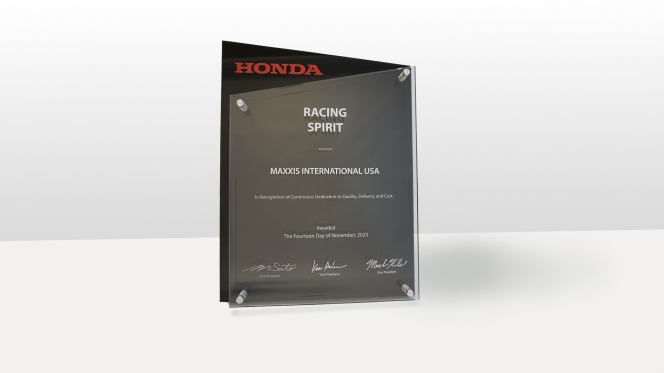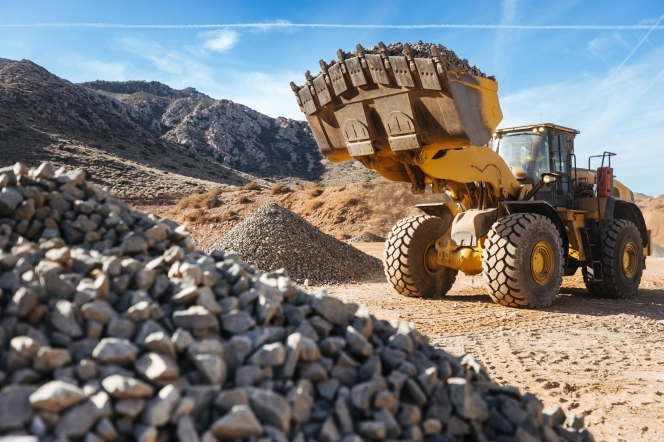
Does post-pandemic lockdowns prompt any priority change for ATMA? Will there be a campaign for greater health safeguards for tyre company workers?
Tyre companies have been at the forefront of maintaining safety standards based on guidelines /advisories during last one year. Tyre companies were perhaps the first to shut down operations when the call for lockdown was given by Prime Minister Narendra Modi last year. It needs to be appreciated that Tyre is a continuous process industry. Sudden shutdown results in huge losses in terms of wastage of raw material and other Work in Progress inventories. Restarting operations involves picking up several pieces involving significant effort. Being a continuous process industry, we could have argued for waiver from the lockdown. However, in appreciation of the real intent of the lockdowns and Tyre Companies being responsible Corporate citizens, aimed at safeguarding lives, went for a shutdown. ATMA has already issued Covid Compliant Standards for the benefit of all tyre plants. Health if its employees including workers has always been a priority with ATMA members, and this will continue to be so going forward.
How do you plan to take cheap tyre import issue to the next level?
Government has introduced certain much-needed measures by curbing indiscriminate import aimed at making the country ‘Aatmnirbhar.’ As we have observed, the imports from China that accounted for the lion’s share in tyre imports in India, have come down significantly after import curbs were initiated. However, it is also being observed that the percentage share of some other countries in total tyre imports in India has gone up substantially. As per the latest tyre import official data, Thailand has displaced China as the largest source of Truck & Bus radial tyres (TBR). Nearly 50% of TBR imported in India in the first three quarters of FY21 are from Thailand. Even in Passenger Car Radials (PCR) imports in India, Thailand has come to account for largest share of 35% in the Apr-Dec’20 period. We are taking up with the Government for all such indiscriminate imports about which the Government has exhorted various sectors to strengthen their domestic manufacturing capacities and capabilities, especially in the automotive space. We are also keenly looking at the measures to further boost domestic production under the PLI scheme for Automotive Sector.
As the automotive sector shows signs of resurgence, how do you foresee the growth of tyre business in India?
After two years of downward trend, things are looking up for the Auto sector in India. Different surveys point to 14 to 18% growth for the Auto sector in FY22. Tyre Industry’s growth is closely linked to Auto sector’s performance and the economic graph. Since economy is also projected to grow at upwards of 10% by different agencies, we expect growth in tyre demand to be in sync with economic and auto sector’s growth. Hopefully tyre imports will remain in check and the growth in demand will be met by Indian manufacturing. The focus on Infrastructure investment by the Government, should lead to higher demand generation in the automobile sector.
The proposed Scrappage Policy is expected to see an increase in new tyre sales. How do you foresee the development? Do you think a similar policy could be implemented for tyres as well?
The new vehicle scrappage policy is a welcome move since it is aimed at phasing out unfit and polluting vehicles from the roads paving the way of boosting the demand for new and environment-friendly vehicles No doubt, the new policy has potential to kick start the revival of the Indian auto sector and the entire automotive value chain including tyres.
The policy with in-built incentives should boost the demand for new and environment-friendly vehicles. It would lead to recovery in Medium & Heavy Commercial Vehicles and its positive demand on tyres which have remained under stress for long and, in the process, also give a fillip to Truck & Bus tyre segment.
Regarding scrappage policy for tyres, any initiative that leads to replacing of worn-out tyres beyond their useful and safe life will be a welcome move. Over the last few years, ATMA & its technical arm Indian Tyre Technical Advisory committee (ITTAC) have been intensely involved in creating awareness on Tyre Care & Road safety through On-ground activations, Tyre clinics, Safety seminars, Mass media messaging, Social media campaigns, Participation at expos, Launching of safety calendars, Animation films and other possible interfaces urging the motorists to replace worn out and poorly maintained tyres before it is too late. Tyre industry is willing to partner in any initiative that leads to replacement of risky worn-out tyres and make the road usage and conditions safer.
The Budget has also focused on bigger infrastructure development and promotion of public transport. What is your take on the readiness of Indian tyre manufacturers to exploit the bigger opportunities?
Tyre industry is ahead of the demand curve. An unprecedented amount of over Rs 50,000 crore was invested across 4-5 years before the pandemic in creating new capacities and R&D. The new capacities are now coming on stream and are geared to meet increased demand borne out of Infra development and other growth drivers. As a vibrant part of Aatmnirbhar Bharat, Tyre Industry has been conscious of its responsibility to the nation and has been investing heavily in new capacities building and research & development. India is one of the few countries that are self-reliant in manufacturing of practically all varieties of tyres.
How does ATMA look to support the uncertainties in the Natural Rubber sector? While looking for easier availability options like new rubber alternatives, will there be any further steps to support the NR sector?
A well-developed and competitive domestic NR sector is very close to Tyre Industry’s heart. The fact remains that domestic production of NR is short of its requirement by over 40%. Rubber Board has certainly made sincere efforts to increase the production and productivity of NR in the country; however significant production- consumption gap continues to exist.
A project for supporting development of new rubber plantations in North East and improving quality of processed forms of rubber has been finalised under the guidance and active mentoring of Mr Piyush Goyal, Hon’ble Minister for Commerce and Industry, Government of India. The project is designed to implement the scheme for developing 200,000 hectares (ha) of rubber plantations in the North Eastern States with financial participation by major tyre companies, represented by ATMA with technical support and coordination by the Rubber Board.
While the NR project looks towards long-term availability of NR, for the short term, Tyre Industry has urged the Rubber Board to help the industry tide over the imminent crisis. (TT)
Maxxis Receives 2025 Racing Spirit Award From Honda
- By TT News
- March 04, 2026

American Honda Motor Company has honoured Maxxis with its 2025 Racing Spirit Award, recognising the tyre manufacturer's exceptional performance as a supplier. This accolade acknowledges Maxxis’ consistent ability to meet Honda’s stringent requirements regarding product quality, punctual delivery and cost efficiency.
The two companies have maintained a strong partnership since 2005, when Maxxis first began supplying original equipment tyres for Honda’s powersports division. Today, Maxxis tyres are fitted to popular Honda models such as the FourTrax Foreman Rubicon 4x4 and the Pioneer SxS. Expressing his gratitude, Andy Lee, President of Maxxis International – USA, conveyed that the entire organisation feels deeply honoured by the recognition. He attributed the achievement to the dedicated efforts of Maxxis employees, whose daily commitment ensures excellent products and service for their long-standing partner. Lee also reaffirmed the company’s dedication to upholding Honda’s expectations in the years ahead.
Lee said, “I know I speak for everyone at Maxxis when I say that we are truly honoured and delighted to receive this award. I’m also proud of the Maxxis employees who work hard every day to deliver excellent equipment and service to our OE partner of more than 20 years. We thank Honda and look forward to continuing to meet their expectations in 2026 and beyond.”
Michelin Introduces XHA3 Earthmover Tyre At ConExpo 2026
- By TT News
- March 04, 2026

Michelin North America, Inc. has launched the Michelin XHA3 tyre at ConExpo 2026. The product is the next generation in the company’s loader and grader range, succeeding the XHA2 model.
The XHA3 replaces several previous lines, including the XHA2, XADN+, XAD65 and XLD. According to the company, this launch represents its most significant innovation in the earthmoving segment in over a decade.
The new tyre has been engineered to meet the requirements of modern construction machinery, which now operate with higher loads and longer duty cycles. The XHA3 features increased load capacity and improved tonne-kilometre-per-hour (TKPH) performance compared to its predecessor.
It is built to carry heavier loads for modern earthmoving equipment. A new tread pattern engineered for durability and traction in loader and grader applications. It is designed to increase TKPH performance and extend tyre life. Aimed at reducing the total cost of ownership for fleet operators.
Yahn Heurlin, VP of Marketing, Michelin North America, said, “With the Michelin XHA3 tire, we’re building on a heritage our customers trust while delivering the next level of performance they demand. Construction equipment continues to evolve with higher loads, longer duty cycles and greater productivity expectations. The XHA3 tire, is designed to help fleets unlock more ton-per-hour performance, carry heavier loads with confidence and extend tire life, all while reducing total cost of ownership.”
Michelin Becomes Official Partner Of Rocket League Championship Series 2026
- By TT News
- March 03, 2026

Michelin has announced a strategic collaboration with BLAST, the organiser behind the 2026 Rocket League Championship Series (RLCS), which serves as the premier global tournament for the popular video game Rocket League. Through this agreement, Michelin becomes an official partner of one of the most energetic and widely viewed eSports properties on the international stage.
Rocket League itself enjoys immense global popularity, attracting several million active participants on a monthly basis. The RLCS season consistently draws tens of millions of views across the world, underscoring its significant reach. This move allows Michelin to deepen its involvement in the competitive gaming sector by associating with a high-profile series known for its passionate following.
The game’s core dynamic involves vehicles competing in a fast-paced arena where precision, control and rapid execution are paramount. These very attributes closely align with Michelin’s established heritage in mobility solutions and high-performance engineering, particularly its extensive background in motorsport. The partnership therefore represents a natural extension of the brand’s core principles into a digital environment.
By entering the world of the RLCS, Michelin seeks to enhance its connection with younger demographics and solidify its relevance within the digital spaces that are increasingly defining future trends and cultural habits. This initiative builds on a foundation of over 25 years during which Michelin has cultivated partnerships within the gaming and automotive simulation spheres, consistently applying its technological know-how to support both realism and superior performance in virtual driving experiences.
- Yokohama Rubber
- Yokohama ADVAN Tyres
- Nürburgring 24-Hour Race
- Nürburgring Langstrecken-Serie
- BMW M Motorsport
Yokohama Becomes BMW M Motorsport’s Official Tyre Partner For 2026 Nürburgring Events
- By TT News
- March 03, 2026

The Yokohama Rubber Co., Ltd., has entered into a new agreement to serve as the official tyre supplier for BMW M Motorsport, the division responsible for the brand's global racing endeavours. This collaboration will debut at the prestigious Nürburgring 24-Hour Race and throughout the Nürburgring Langstrecken-Serie in 2026.
This renewed partnership revives a historical connection between the two companies, who previously worked together on the same iconic circuit from 1980 to 1990. During that initial decade-long stint, their combined efforts secured two overall victories. After an interval of nearly four decades, they are reuniting for the current season to compete in the premier SP9 class, fielding the BMW M4 GT3 EVO. For this campaign, Yokohama will equip the vehicle with its high-performance ADVAN racing tyres, with the shared objective of capturing another overall win.

Beyond its tie-up with the BMW team, Yokohama Rubber continues its longstanding commitment to the Nürburgring. It will provide its tyres to numerous leading teams contesting both the endurance series and the 24-hour event this season. The company is focused on achieving an overall championship victory for a vehicle equipped with its YOKOHAMA brand tyres.
Franciscus Van Meel, CEO, BMW M GmbH, said, “We are excited to welcome YOKOHAMA as Official Partner of BMW M Motorsport for our Nürburgring programme. YOKOHAMA’s technical expertise and motorsport passion strengthen our drive for maximum performance and precision. Their support allows our team to focus fully on what defines BMW M Motorsport: pushing the limits on every lap. We look forward to a strong endurance season.”
Team: Schubert Motorsport
Class: SP9
Car: BMW M4 GT3 EVO
Tyres:
ADVAN A005 (for dry conditions); Sizes: front 300/680R18, rear 330/710R18
ADVAN A006 (for wet conditions); Sizes: front 300/680R18, rear 320/710R18
Race Schedule (as of date of this release)
March 14 (Sat): NLS Round 1
March 21 (Sat): NLS Round 2
April 11 (Sat): NLS Round 3
April 18 (Sat) –19 (Sun): Nürburgring 24-Hour Race (Qualifiers) , NLS Rounds 4 & 5
May 14 (Thu) –17 (Sun): Nürburgring 24-Hour Race
June 20 (Sat): NLS Round 6
August 1 (Sat): NLS Round 7
September 12 (Sat) –13 (Sun): NLS Rounds 8 & 9
October 10 (Sat): NLS Round 10







Comments (0)
ADD COMMENT